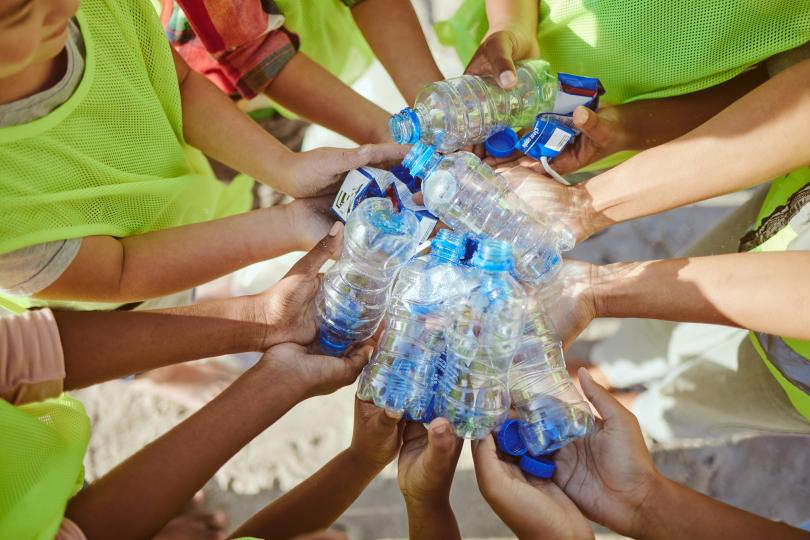
Indonesia's Dream School
Devirisal Djabumir gave up a job at a power plant to found the Dream School, with the aim of providing soft skills to Indonesian youth as well as creating a cleaner environment.
“Education is the most powerful weapon which you can use to change the world,” he says, quoting former South African president Nelson Mandela.
One of the 575 applicants to the Green Skills Award 2023, Devirisal has been working for the past five years to achieve his dream, with curbing the scourge of plastic waste one of his priorities.
“I called it the Dream School as I want to empower and inspire kids, and to dream bigger. Through such initiatives we can bring about a bigger impact on Indonesia, and to also decrease the amount of plastic waste,” he says.
Indonesia is grappling with a major plastic waste problem. It produces some 7.8 million tonnes of plastic waste per year, of which 4.9 million tonnes are not collected or disposed of properly, according to World Bank figures. Out of that amount, some 346,500 tonnes are discharged directly into the sea, with two-thirds coming from the two most populated islands, Java and Sumatra.
The archipelago's 18,305 other islands are also suffering from plastic waste that litters shorelines and impacts biodiversity. The island of Kepulauan Aru in Maluku province is one such place. Located between the islands of Papua and Australia, it is far from the tourist hotspots and Indonesia's economic hubs.
Positive actions
In 2017, Devirisal, also known as Dave, said he felt a calling to go back to Kepulauan Aru to make a positive change.
“My island is fairly remote and undeveloped. There are around 600 to 700 smaller islands (off the main island), and the majority of people seek a livelihood from fishing, but plastic is scattered everywhere and people dump trash in the ocean,” he says. “I also saw a lot of kids dropping out of school, and taking up negative instead of positive activities, so I decided to set up the Dream School.”
Devirisal, now 31, set up the school in 2018. An English language graduate, Devirisal initially taught English to six students. With financial payment difficult due to the low incomes of families, he asked to be paid in plastic instead, which would then be recycled. The concept soon attracted attention on social media and more children started to join the school while people also wanted to volunteer.
As the student numbers increased, the curriculum expanded to include entrepreneurship, inspiration, and public speaking.
“The payment is plastic waste, so it is collected and recycled, turned into eco-bricks or other products. It is better than being scattered on the coastlines,” he says.
A growing impact
The initiative has had a wider impact on society, with local schools encouraged to introduce zero plastic policies, such as bringing in their own refillable water bottles, and creating capacity building to deal with waste management and raise environmental awareness.
Children attend the Dream School from elementary to middle school age. So far, 80 students have graduated, and there are 120 students enrolled, with teaching provided by 15 volunteers.
When an article about the school was published in a national newspaper, it reached the attention of readers in the USA. An American couple visited the island, along with 10 students, to volunteer. The couple has also provided long-term financial support, sponsoring students and providing educational material, such as books and pens.
Dreaming big
In 2022, the Dream School garnered regional attention, winning an award from Conservation Optimism Southeast Asia for its circular economy initiative. Within the country, the school won an Arkatama Award 2022, which saw Devirisal invited to talk on a national TV show.
“We are from a tiny island, but sharing the story of the Dream School has helped to inspire people in Indonesia,” he says.
Devirisal hopes the initiative will flourish and spread further. He dreams of reaching 1,000 students in the next five years, and to have a good legacy and big impact on people and the environment.
Did you like this article? If you would like to be notified when new content like this is published, subscribe to receive our email alerts.